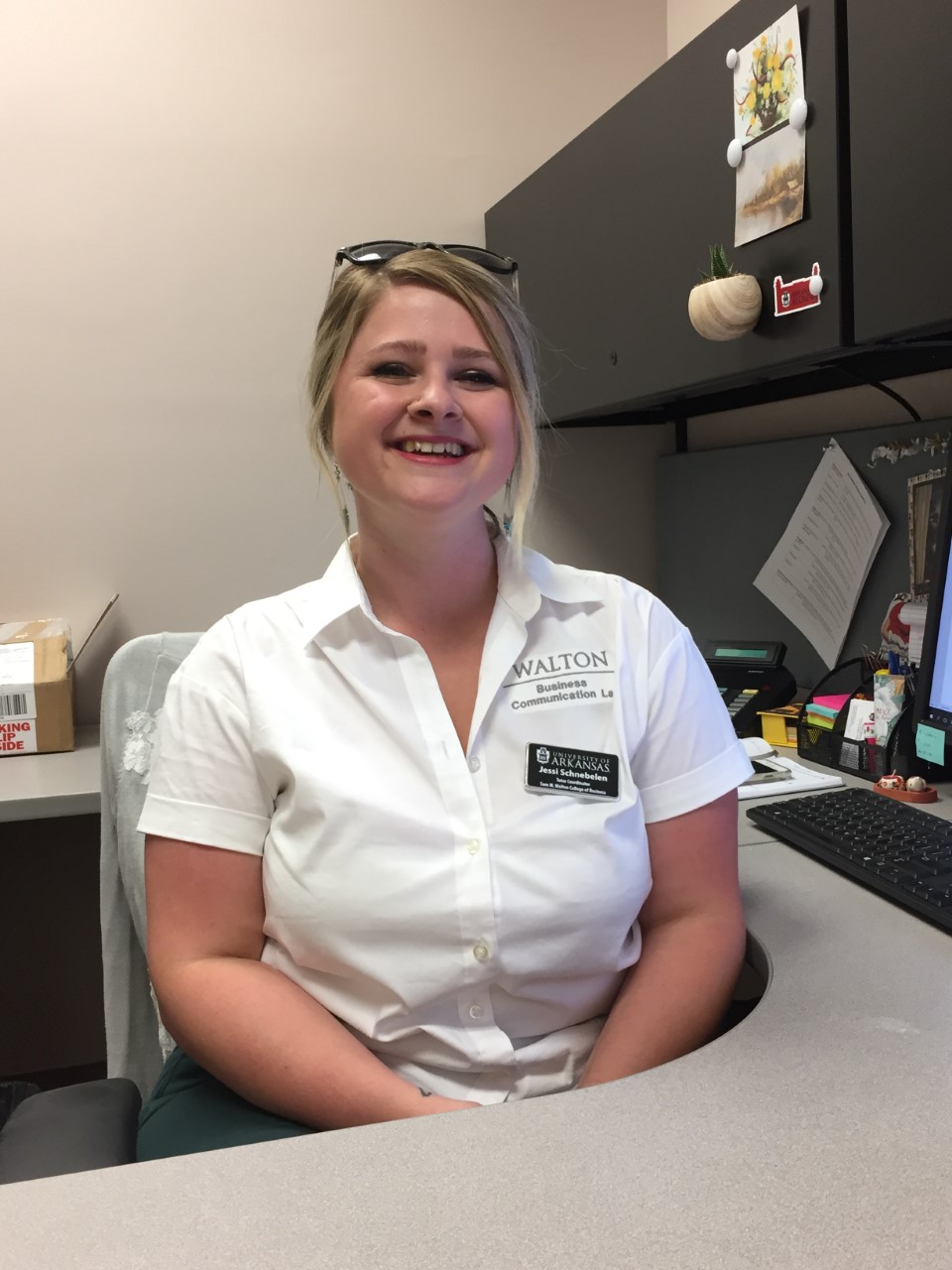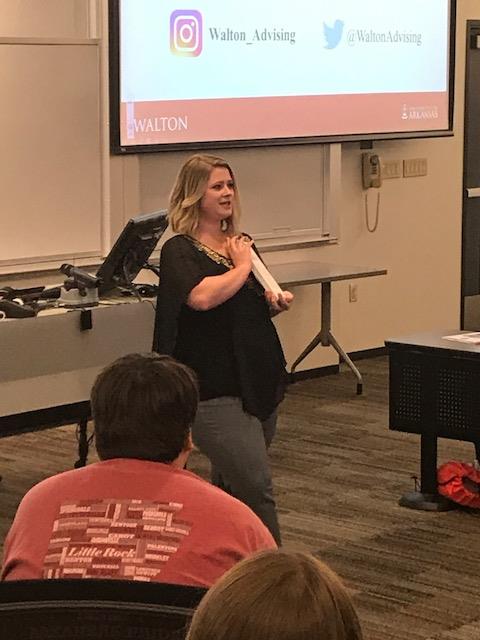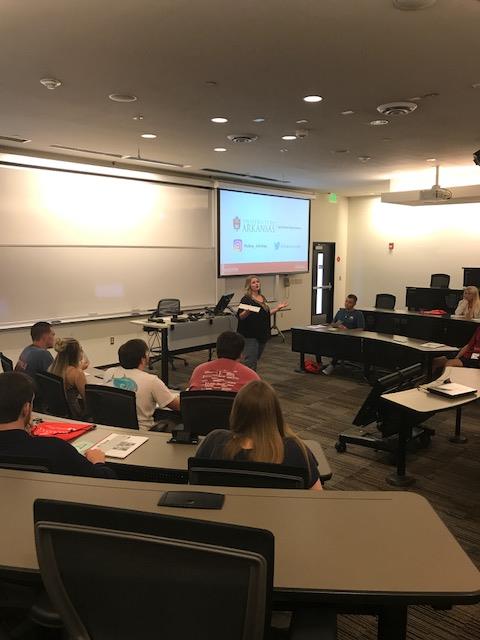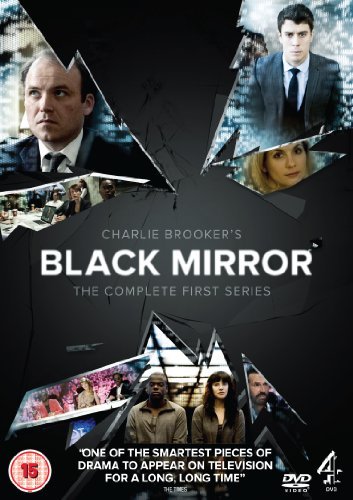Jessi Schnebelen Starts New Position
with Walton College of Business

This past spring, Jessi Schnebelen (M.A. ’16) started working as the Tutor Coordinator for the Business Communication Lab at the Walton College of Business. Long interested in exploring alt-ac career paths, and now having secured a competitive non-teaching position, Jessi has learned a lot about navigating the job market with a graduate degree in the humanities. I recently caught up with her to ask a few questions about her current work, her decision not to go on for a Ph.D. (for now), Dr. Szwydky’s job market course, Jessi’s thesis topic, and her recommendation for where to find some of the best tea in Fayetteville.
Could you briefly review for our readers what your job as Tutor Coordinator in the Business Communication Lab (BCL) entails? How does that position draw upon the knowledge and skills you acquired as an English M.A. student?
As the Tutor Coordinator, I prepare and implement tutor curriculum and training. This often means that I research and articulate best practices for tutoring pedagogy–a direct correlation to the M.A. in English, as you can imagine. Our office also does a lot of outreach in the Walton College. We work with faculty on creating assignments and participate in workshopping those assignments. In addition, we work with students on their written and oral communication skills. It often feels like this position is an extension of the M.A. because I am still teaching rhetoric in a lot of ways.
Could you talk a little about your decision not to continue with a doctoral program after getting your M.A.? How flexible do you feel an M.A. to be as a terminal degree? Do you think it’s marketable when searching for not only teaching jobs and work in university offices, such as the BCL, but also careers outside of academia?
I have not ruled out the pursuit of the doctoral degree, but at this time in my life I want to give myself some time to experience other things. I want to see what else is out there, travel a bit, and really just live a little before tying myself down. Plus, a lot of the things that drew me to academia exist in my current position.
I believe the degree can be flexible if you know how to spin it. Mastering the language of job documents is an art of its own; your experience is only as good as you can articulate it (on the job market, of course). You have to know how to market your skills, and even how to look for areas where your skills are needed–though they may not be explicitly stated. Reading between the lines is what we English majors do best!

Schnebelen Presenting at the the Walton College of Business Freshman Orientation
You’ve expressed to me your appreciation for the opportunity to take Dr. Lissette Szwydky’s job market course (ENGL 5243) while you were in the M.A. program. What were some of the main ways that course helped you with your post-M.A. job search?
In short, the class taught me a lot about how to talk about myself. It also pushed me to do some major self-reflection. Why was I doing this? What did I really want from this experience? I came in thinking the course was all business, but in a lot of ways I left knowing more about myself and what was really important to me. I am not sure if that is the intention of the course or if everyone else has that experience, but it changed a lot of the ways I thought about myself in relation to academia.
I also left the course with a lot of revised job documents. Trust me when I say the first few documents you create should be seen by no one! You want to have lots and lots of people view them before you send them off, especially to a job you want. There were a lot of other valuable lessons I learned from the course, but if I have to narrow it down, I would say the self-exploration and job documents were my biggest take-aways. I think there is this strange notion among students in the humanities that being “career oriented” or engaging in “professionalization” is somehow going to stifle creativity or mold you into “the man,” but I found the opposite to be true. It is just another lens through which to view yourself.

Schnebelen Presenting at the Walton College of Business Freshman Orientation
In your M.A. thesis, you explore the idea of mediated literary subjectivities from the 19th century through the digital age, applying Lacanian theory first to the novels of Austen and Woolf and then to the television writing of Charlie Brooker (creator of Black Mirror). The following is a quote from the end of your project:
The rise of digital technology has revealed a major shift in the history of mediation. While Austen and Woolf disrupted our sense of self through virtual spaces, enabling a sense of self that could be potentially malleable, Brooker reveals that this new identity formation may create a self that is so malleable that it never fully takes its form but remains immersed in the flow of other’s desires. One common theme in this trajectory of mediation is interruption. The things that inhabit the spaces between the self and its representation, while they have the potential to hinder identity formation, can also be a place of resistance.
I’m just wondering if you still feel the same about your thesis topic, a year after your defense, or if you’ve become more or less optimistic regarding the impact of technology on our sense of self?
I would not say I was ever really pessimistic about the impact of technology. My intention was to simply highlight a major shift in subjectivity with the emergence of virtual reality. In other words, a digital subjectivity has emerged; how is it different and what do we do with it? The way we see each other–social media, FaceTime, YouTube–all of this is mediated by technological devices and there is an obvious disconnect that emerges with this type of mediation. Brooker’s series forces us to confront the effects of that disconnect. What is perhaps more interesting is that people had similar questions and concerns about the effects of the novel.
There are interesting parallels to be drawn between the way literary and virtual spaces play on our sympathies. Some scholars would argue that the emergence of digital subjectivity hinders sympathy, but I am not so sure. It is easy to observe the dulled consciousness that virtual realities foster, but I think there is more to it than that. However, the thesis is such a small project, so I was only able to skim the surface!

Charlie Brooker’s Black Mirror Series (Netflix)
I recall your being a rather serious tea drinker, which I respect (being a coffee drinker, myself). For any of our current graduate students in search of quality tea, especially during those peak periods of graduate school stress, where in Fayetteville do you recommend they go?
I am a very serious tea drinker! I am partial to dainty things, so of course I am going to suggest Savoy Tea Co. on the square. You can drink tea out of dainty little cups. Seriously–it’s like a grown-up tea party. It also helps that they have a great selection of tea and dusty old books you can skim through.
